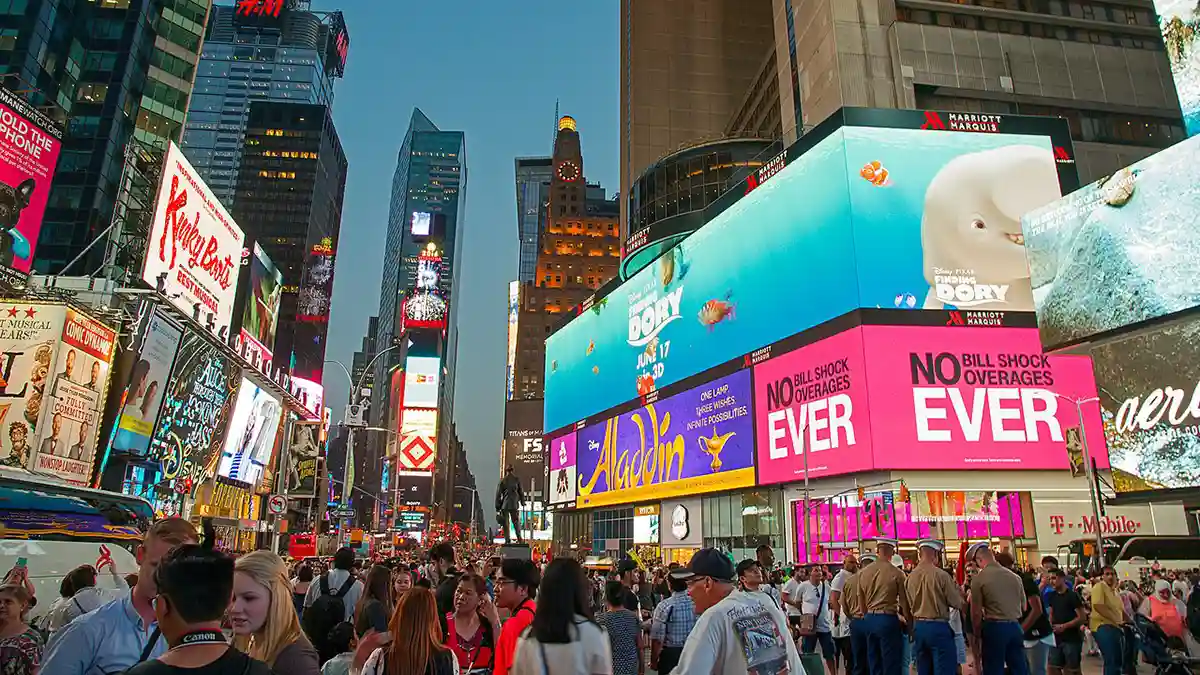New York legislators, including Senator James Skoufis, are poised to take a big gamble with the state’s economy by curtailing sales in the secondary ticket market.
Roughly 2 million tickets to events in New York are purchased annually by visitors from outside the Empire State —about 1.8 million by domestic travelers and 200,000 by international tourists. Secondary-market platforms facilitate a significant share of those sales, offering consumer-friendly service, multilingual support, and concierge-style assistance that primary platforms typically lack. Those ticket buyers don’t just fill theater seats; they book hotel rooms, dine out, and shop, bringing along companions who spend even more.
According to a New York theater-industry lobbying group, out-of-state and international patrons who purchase through the secondary market generate $250 million in state and local tax revenue each year and inject an estimated $750 million in total spending into the New York economy. That money supports union stagehands, hospitality workers, and countless small businesses.
Yet most provisions in the new legislation are already covered by existing law, and the added compliance burden—including costly website changes for both primary and secondary sellers—could run into the millions. Smaller community theaters that rely on inexpensive ticketing software may face higher service-charge pass-throughs or be forced off their current systems entirely. The bill also exposes venues and ticketing companies to class-action lawsuits, because many of its requirements fall outside typical arbitration clauses. Nearly every New York venue could be sued for practices such as failing to disclose rebate deals with primary vendors or issuing non-transferable tickets.
Major League Baseball offers a counter-example: its “ubiquitous distribution” program lets any legitimate marketplace plug directly into MLB ticketing APIs. MLB gains data and the benefit of more than $1 billion in annual secondary-market marketing spend, including roughly $50 million a year promoting New York games. Wider distribution equals greater awareness—and higher sales.
The bill also creates what amounts to occupational discrimination. Musicians would face restrictive resale rules that sports teams would largely avoid—the opposite of what lawmakers in Connecticut tried (and failed) to do this year, when that state sought to give artists full control over both primary and secondary ticketing.
What some legislators may not realize is that the secondary market purchases billions of dollars in face-value inventory each year directly from teams, venues, and artists. Those upfront buys shift risk away from event organizers and guarantee robust marketing. Eliminating that channel could mean fewer events in New York—and more in Connecticut, New Jersey, and Massachusetts.
Enforcement is another question mark. In the past 15 years New York has brought only a handful of cases involving ticket-industry misconduct. Meanwhile, the largest primary seller openly provides software advantages to select resellers—as long as those resellers list their inventory on the primary’s own secondary exchange.
The most plausible explanation for the bill’s abrupt policy shift is that large primary platforms stand to profit by charging fees on both the initial sale and the mandatory in-house resale, while consumers are stuck with fewer options.
Consumers today often buy tickets six months or more in advance. If they can resell only on a single exchange—one that might block below-face-value listings, as happened with Bruce Springsteen tickets in Oklahoma or Ed Sheeran’s in the U.K.—their flexibility evaporates.
In short, this legislation risks harming every stakeholder it claims to protect. The only reforms that directly address the two biggest issues identified by the FTC are all-in pricing (already federally mandated and enforced) and ending exclusivity contracts that lock venues to one ticketing vendor—a step the bill pointedly does not take.
Rather than layering on burdensome, potentially discriminatory regulations, lawmakers should focus on true transparency and fair competition—principles that benefit New York’s economy instead of sending business, and entertainment events, across state lines.



